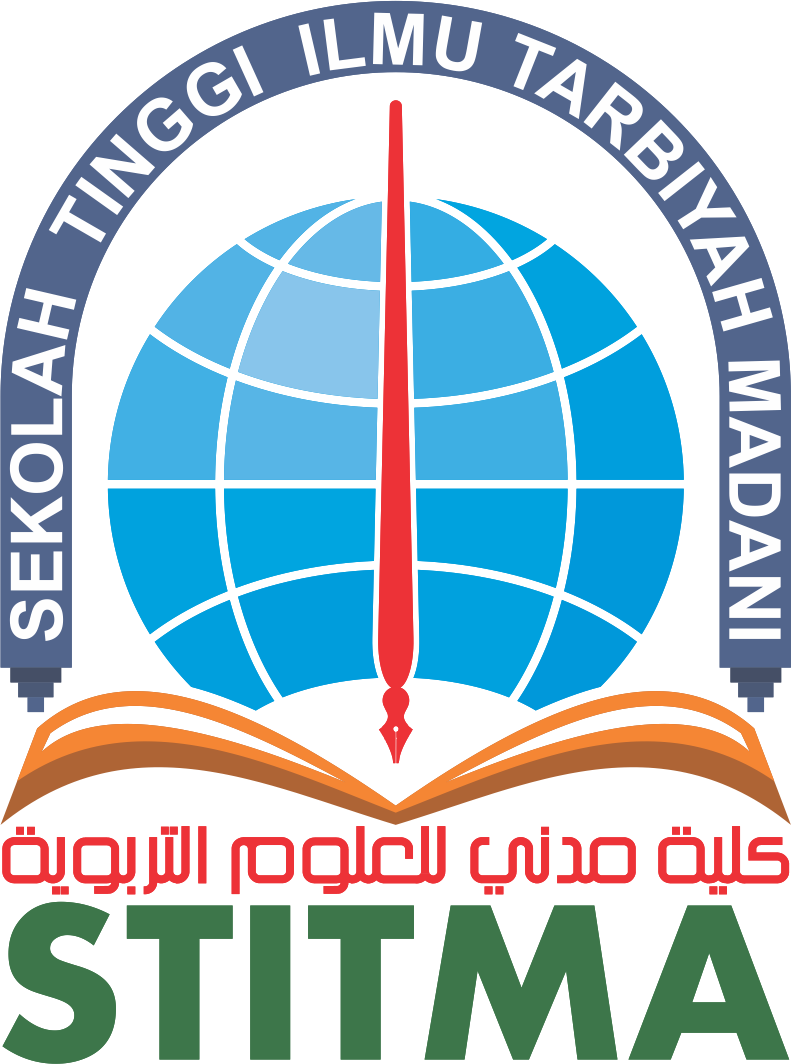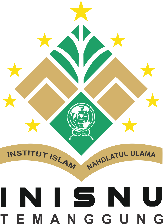Integrating al-qur’an, hadith, and science in islamic education: Tracing scientific insights
DOI:
https://doi.org/10.59944/jipsi.v4i3.453Keywords:
Al-Qur'an Hadith, Science in Islamic Education, Scientific InsightsAbstract
Islam views knowledge as a fundamental element of human life, emphasizing the harmonization between revelation and reason in the pursuit of truth. The Qur’an and Hadith serve as the primary sources of moral and transcendental values, while reason and science function as instruments to understand the phenomena of Allah’s creation. Thus, in Islam, knowledge is not solely directed toward material advancement, but also serves as a means of spiritual devotion and the welfare of the community. This study employs a library research method to examine the concept of knowledge in Islam and its relevance to the development of modern science. The findings reveal that Islam not only encourages scientific exploration but also provides an ethical foundation for its application. In fields such as cosmology, astronomy, embryology, and modern technology, numerous scientific discoveries affirm the Qur’anic indications of the orderliness of Allah’s creation. This demonstrates that science and religion in the Islamic perspective are not opposing entities, but rather complementary ones. Although debates persist on certain issues, such as the theory of evolution or the concept of the multiverse, these discourses are not threats to Islamic teachings. Instead, they open space for contemporary ijtihad that enriches the body of Muslim scholarship. By positioning revelation as a moral compass and science as a technical instrument, Islam offers a balanced scientific paradigm—one that avoids the traps of secular scientism that neglects spirituality, as well as textual literalism that denies rationality. Accordingly, this study affirms that the integration between Islam and science is a path toward building an advanced, sustainable civilization rooted in divine values. Science becomes a means of tafakkur that deepens faith, while revelation provides ethical direction and spiritual purpose in the utilization of knowledge. The synergy between the two is crucial for the development of Islamic education, enabling the emergence of generations who are intellectually excellent while remaining spiritually and morally steadfast.
References
Abdullah, A. (2012). Islam dan ilmu: Menjernihkan kembali integrasi-interkoneksi ilmu-ilmu agama, sains, dan humaniora. Pustaka Pelajar.
Ahmed, M. (2022). Islamic ethics and artificial intelligence: Towards a framework of falah in technology. Journal of Islamic Ethics, 6(2), 135–152.
Al-Attas, S. M. N. (2018). Islam and the philosophy of science. Kuala Lumpur: International Institute of Islamic Thought and Civilization (ISTAC).
Aliwan, A., Mustafidin, A., Hakim, A., Ratnawati, S., Latifah, K. F., & Hidayatulloh, A. (2025). The role of urban landscape in the dynamics of Islamic education in the archipelago: Theoretical and historical study. At-Turots: Jurnal Pendidikan Islam, 7(1), 124–135. https://doi.org/10.51468/jpi.v7i1.887
Aliwan (2025), The Leadership Strategy of Madrasah Principals in Enhancing Teacher Professionalism in the Digital Era (A Case Study at MTs Asy-Syarifah Brumbung, Mranggen, Demak). (2025). Ar-Risalah Journal Of Islamic Education, 1(1), 78-91. https://albaayaninstitute.org/index.php/arrisalah/article/view/78
Amiruddin, M., & Alfaiz, A. (2023). Hisab-rukyat dan integrasi teknologi modern dalam penentuan waktu ibadah. Jurnal Ilmu Falak dan Astronomi Islam, 12(1), 55–70.
Basri, H., & Yusuf, M. (2021). Islam, teknologi, dan etika: Telaah kontemporer. Jurnal Etika Islam Kontemporer, 9(2), 101–118.
Efendi, F., Majid, I. A., Nurlaila, N., Zulkifli, M., Candra, A., Samae, N., & Aliwan. (2025). The implementation of sumedang jaya wisata (sjw) management in supporting the development of halal tourism in ranah pesisir, west sumatra. Amorti: Jurnal Studi Islam Interdisipliner, 4(3), 112–120. https://doi.org/10.59944/amorti.v4i3.459
Fauzan, M. (2020). Tafsir ayat-ayat kauniyah dan relevansinya dengan sains modern. Jurnal Studi Al-Qur’an, 16(2), 201–220.
Fijas, F., & Marlini, M. (2020). Metodologi penelitian kepustakaan: Konsep dan penerapan. Jurnal Pendidikan dan Penelitian Islam, 5(1), 45–53.
Gutas, D. (2019). Greek thought, Arabic culture: The Graeco-Arabic translation movement in Baghdad and early ‘Abbāsid society. London: Routledge.
Hassan, R. (2017). The future of Muslim civilization in the age of globalization. Kuala Lumpur: IIUM Press.
Hanafi, R. (2021). Kebulatan bumi dalam perspektif tafsir Al-Qur’an dan astronomi. Jurnal Ulumul Qur’an, 12(1), 77–94.
Iqbal, M. (2019). The reconstruction of religious thought in Islam revisited: Relevance for modern science. Islamic Studies Journal, 58(4), 345–362.
Khairul Fahmi, K., Salminawati, S., & Usiono, U. (2019). Integrasi wahyu dan akal dalam epistemologi Islam. Jurnal Studi Islam dan Humaniora, 7(2), 133–150.
Lusiono, E., & Alrizwan, A. (2021). Penelitian deskriptif-analitis dalam studi Islam. Jurnal Penelitian Agama dan Budaya, 4(1), 66–78.
Ma’fudin, A., Mustafidin, A., Maskur, Saputri, B. H., & Aliwan. (2025). Implementasi program pembelajaran Tahsinul Qiro’ah Al‑Qur’an berbasis peer teaching di MTs Darul Amanah Bedono Kabupaten Semarang. An‑Nasyi’in: Jurnal Ilmu Pendidikan, 1(1), 49–61. Tersedia secara daring https://ejournal.literasantri.org/annasyiin/article/view/11
Mahmudi, M. (2022). Fungsi bumi dalam Al-Qur’an: Perspektif tafsir kontemporer. Jurnal Tafsir dan Filsafat Islam, 8(1), 89–108.
Mirza, U. J. (2021). Islamic scientific critical consciousness: Towards a decolonial pedagogy of science education. Cultural Studies of Science Education, 16(1), 123–146.
Misbah, M., Lubis, S. H., Purwanti, E., Rohimah, R., Ikhsanudin, M., Jumaeda, S., ... & Aliwan, A. (2025). Metodologi penelitian pendidikan agama Islam (kualitatif dan kuantitatif)(ET Murni, Ed.). Sumatera Barat: CV Afasa Pustaka. ISBN: 978-623-89848-9-3.
Mudarrisuna Journal. (2023). Integrasi wahyu dan akal dalam pengembangan sains modern. Mudarrisuna: Jurnal Kajian Pendidikan Islam, 13(2), 221–240.
Nasarudin, N., Suryanto, D., Nurjanah, N., Rofi’i, M. A., Mubarok, F., Kardi, J., ... & Umar, R. H. (2023). Moderasi beragama dari zaman Rasulullah hingga era Society 5.0 (ET Murni, Ed.). Sumatera Barat: CV Afasa Pustaka.
Nasr, S. H. (2015). Science and civilization in Islam. Cambridge, MA: Harvard University Press.
Nasr, S. H. (2016). The spiritual significance of nature in Islam. Islamic Studies Review, 58(3), 291–309.
Nasr, S. H. (2018). A young Muslim’s guide to the modern world. Chicago: Kazi Publications.
Nurlaila, N., & Karim, A. (2022). Kecerdasan buatan dan tantangan etika Islam. Jurnal Teknologi dan Peradaban Islam, 4(1), 45–60.
Rachmad, R. (2019). Bumi datar dalam perspektif tafsir klasik dan kontemporer. Jurnal Ushuluddin, 27(2), 201–218.
Rahman, F. (2018). Embriologi dalam Al-Qur’an dan relevansinya dengan sains modern. Jurnal Biologi dan Pendidikan Islam, 6(1), 77–92.
Sari, D. (2020). Pergantian siang dan malam dalam Al-Qur’an dan sains modern. Jurnal Kosmologi Islam, 10(2), 101–118.
Sari, Y., & Asmendri, A. (2020). Teknik pengumpulan data dalam penelitian kepustakaan. Jurnal Penelitian Pendidikan Islam, 8(2), 245–260.
Uyuni, B., Mukminin, A., Fitri, A., Nirwana, A. N., Rhain, A., Itrayuni, A., ... & AG, N. K., & Aliwan, A.(2024). Pengantar studi Al-Qur’an dan Hadits (A. Aprianto, Ed.). Sumatera Barat: CV Afasa Pustaka. ISBN: 978-623-89550-0-8.
Warto, W. (2018). Perkembangan sains dan teknologi dalam perspektif Islam. Jurnal Ilmu Pendidikan Islam, 6(1), 55–70.
Zainuddin, A. (2020). Integrasi ilmu agama dan sains dalam pendidikan Islam kontemporer. Tarbiyah: Jurnal Pendidikan Islam, 15(2), 211–228.




























